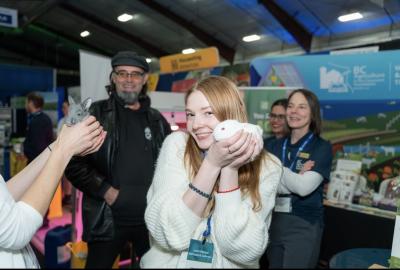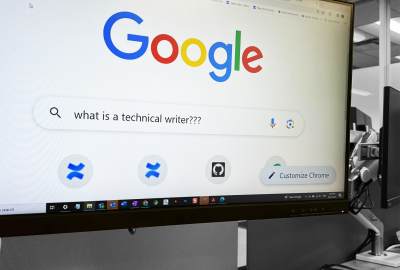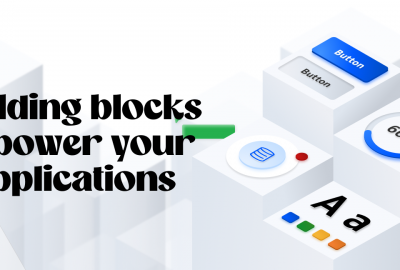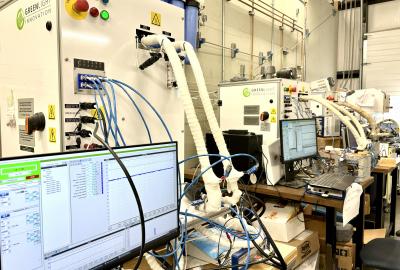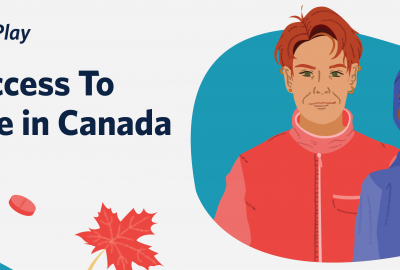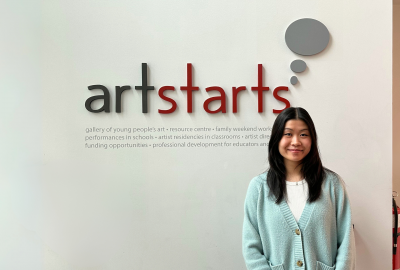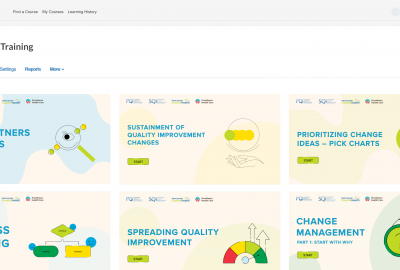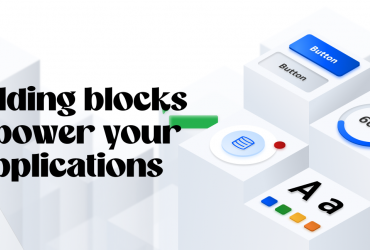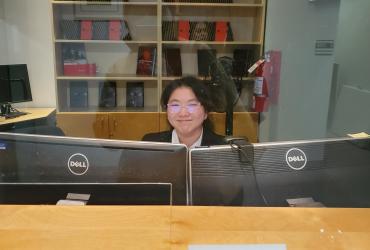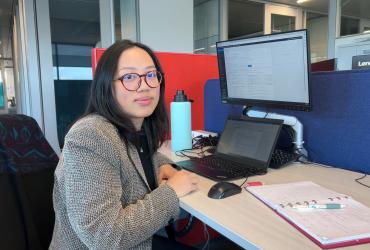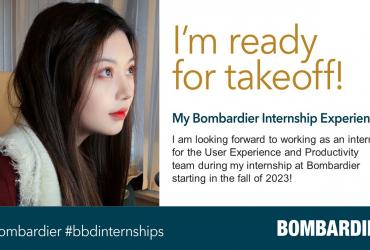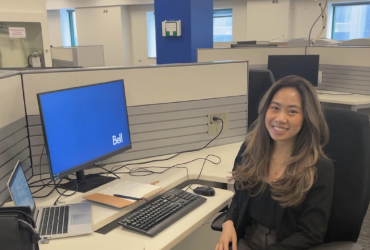Orientation and First Weeks
As someone who chose to work onsite, my first day was incredibly fun because it started with an orientation event that gathered all Co-op students of the Spring 2024 term (new and extending Co-op students) in the main lobby of the Ottawa campus which became my favourite location (it has huge glass windows and is surrounded by trees). There was a presentation given by Human Resources that covered information on where to find useful resources to get started, volunteer opportunities, and other Nokia-specific details. We were given an amazing campus tour, provided food, and also received our employee badges!
Over the initial weeks, there were meet and greets and insightful workshops to help us network with other students and learn more about the culture at Nokia. Apart from these events, the first actual work week consisted of having 30-minute coffee chats with members of the design team that I would be working with and familiarizing myself with the basics of IT Networking. Coffee chats provided an excellent opportunity to get tips from experienced designers and ask questions about their day-to-day.
Day to Day
I was offered a hybrid work model where I worked from home 3 days a week and went to the office on Tuesday and Thursday as those were the days the team preferred to be in office. Typically, my working hours were 9:30 - 5:30 PM but they could differ based on meetings.
Here are some of the daily tasks:
- I would start my morning with tea when I worked from home and coffee when I was in the office
- Responded to any Teams messages and checked emails
- Created a to-do list on my laptop for the day
- Looked at meeting times and prepared for them
- Participated in weekly meetings on Monday with my mentor and weekly Thursday meetings with the UX team for a design review where each week one member would share their work or talk about design
- Prioritized tasks and worked closely with other designers responsible for the projects that I was assigned to
- Completed LinkedIn Learning courses offered by Nokia
- Played badminton or ping pong after work on Tuesday and Thursday with other Co-op students from different departments
Overall, I tried to learn and maximize my opportunity by taking on different types of tasks and asking questions to fully understand the requirements. I wanted to push myself and see if I could multi-task so I took on some tasks simultaneously which was quite rewarding because it made me improve at time-management and prioritization.
Learning and Adaptation
During the first part of my term, I focused on learning the basics of networking and delving into Nokia's dashboard product, which was going to be my main project. I spent my free time taking LinkedIn Learning courses to deepen my understanding. I wasn't afraid to ask questions about the product and routers as I wanted to understand them. Taking notes throughout my co-op helped me remember important details, and I made sure to keep seeking feedback to know how I was performing and how I could improve. This opportunity allowed me to develop skills in communicating with diverse groups such as developers, PLMs, and documentation validators, presenting my designs to them for review, marking a significant growth in my abilities from before the co-op.
Accomplishments and Challenges
I had the opportunity to engage in multiple projects, allowing me to apply various UX skills such as crafting mockups, prototyping, and refining user flows to enhance task efficiency. I also delved into contributing to the design system, recognizing its crucial role in maintaining consistency across products. These experiences significantly enriched my growth as a designer and underscored the importance of standardization in the design process. Moreover, the tasks allowed me to further develop my design skills in software such as Figma and apart from that, explore new areas, like AI in UX, through Nokia's learning portal on topics I had not explored much before this Co-op.
Social and Extracurricular Activities
At Nokia, being a part of the team is not just about work, it is about building connections and having fun along the way. I had the chance to participate in exciting events, activities, and workshops organized especially for co-ops. One highlight was volunteering at a lively ping pong tournament hosted by the student ambassadors where I helped in setting up for the tournament and keeping track of the scores. Whether I was competing in ping pong or trying my hand at pickleball, these events were fantastic for meeting new people from different corners of the company. Beyond sports, some members of the design team organized fun outings like escape rooms and a game night at a local pub, where we bonded over board games and delicious food. I also took part in a trivia game hosted during Women's Day by one of the social groups.

